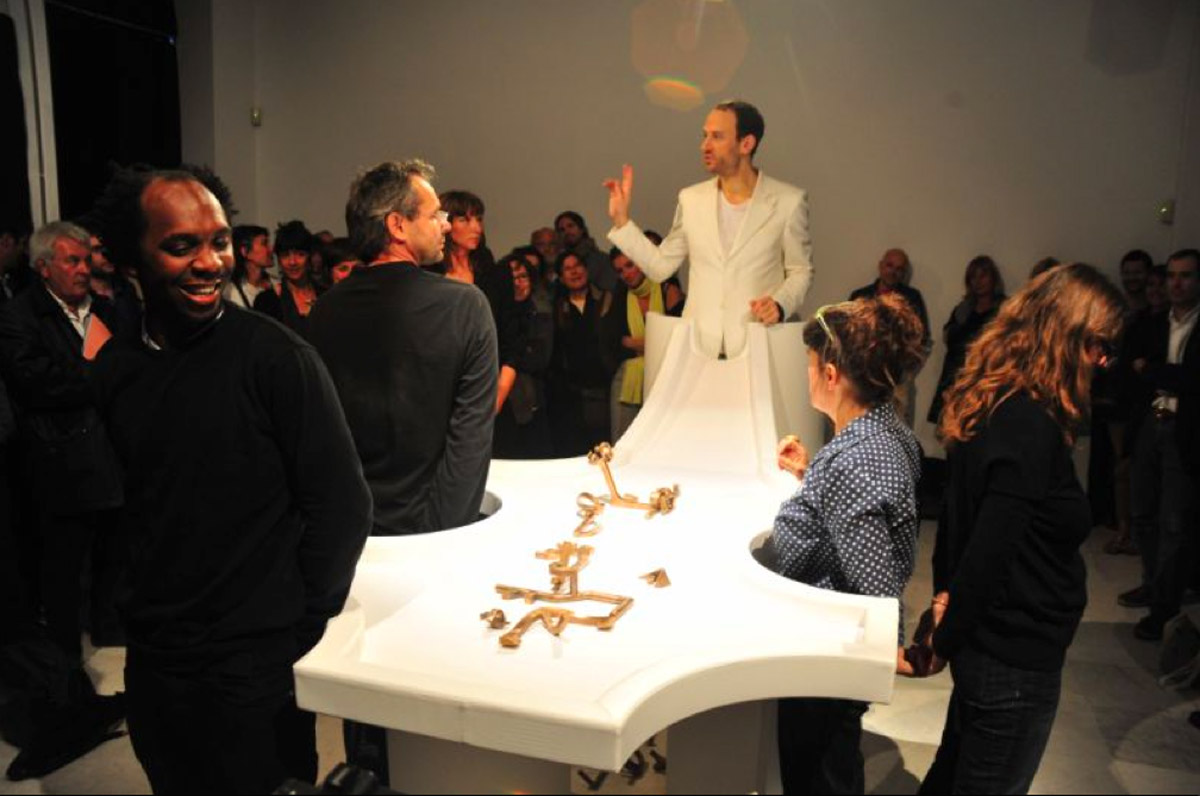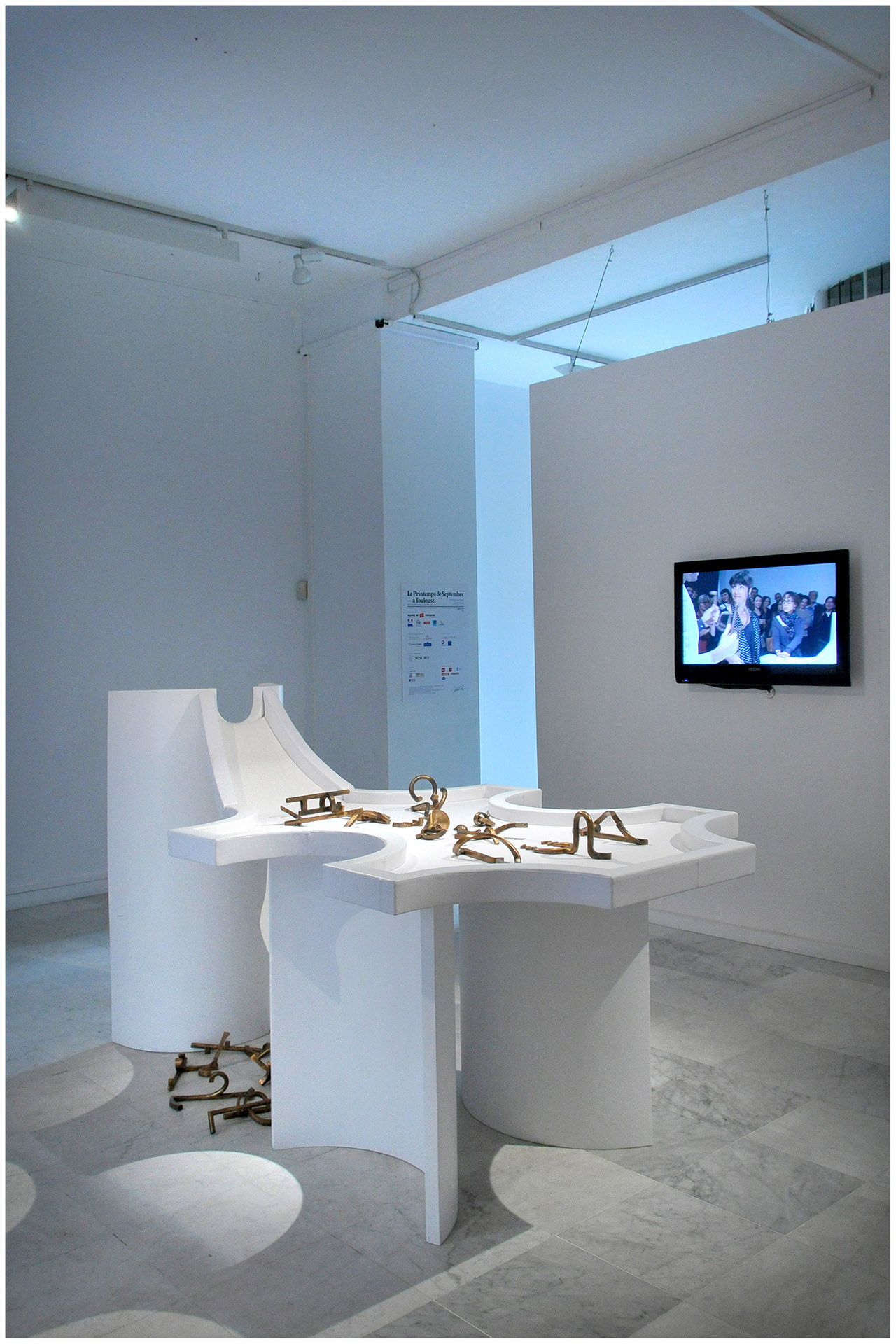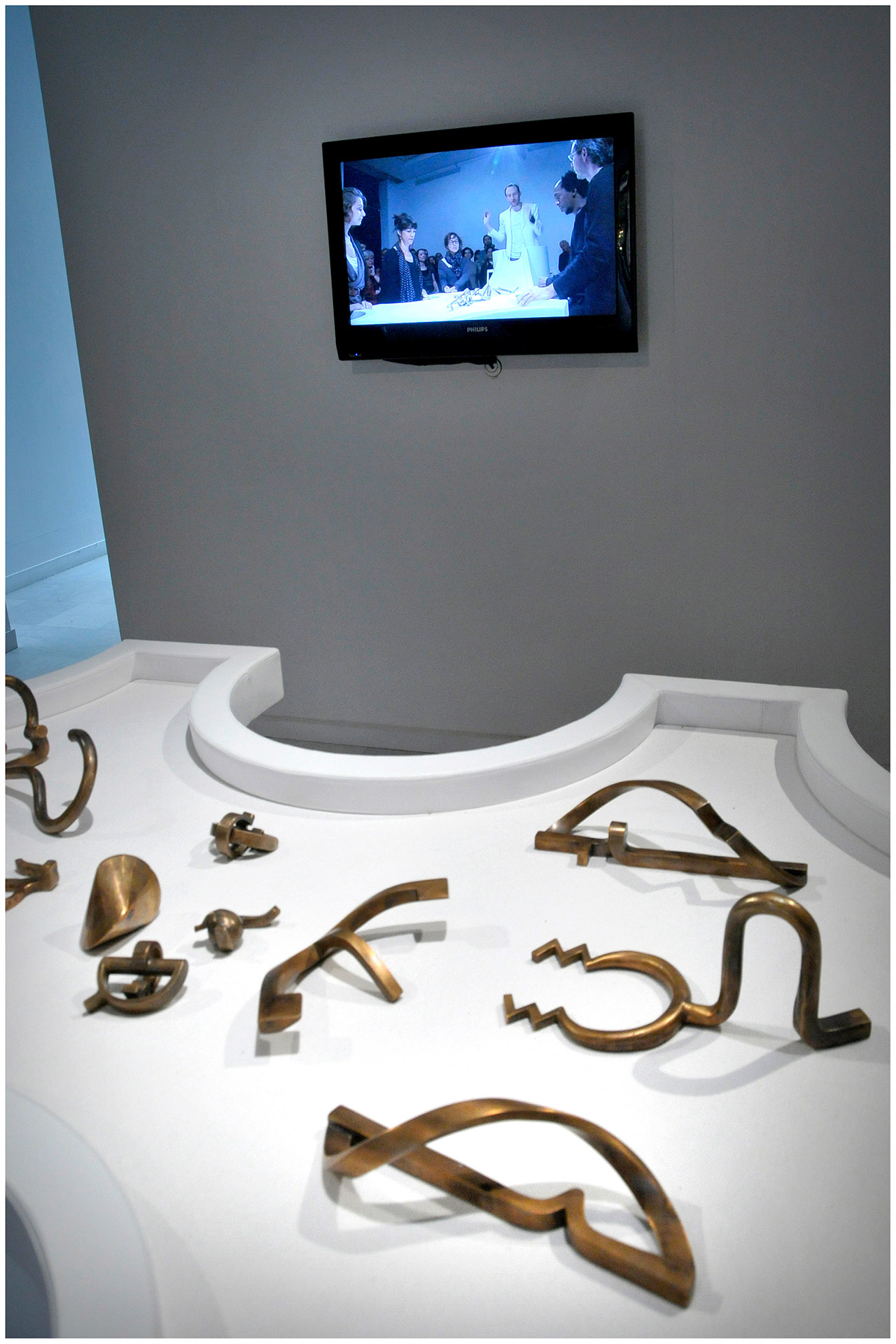Fran Spafa Feda, 2010
Printemps de Septembre
Toulouse, France
Commisioned by Fonds National d'Art Contemporain
Wood, leather, felt, 23 bronze sculptures.
Fran Spafa Feda is a sculptural game which stimulates the conception of improbabilities through conversation. The game is inspired by 17th Century attempts, by Leibniz, Dalgarno, Wilkins and others, to develop a universal language based on the reduction of all knowledge into an "alphabet of human thought", comprised of irreducible semantic primitives or radicals, in some cases represented by symbols or characters, the combination of which could produce any possible idea. Although universal languages continued to be developed, and ontologies, in the realm of the information sciences, have become a major industry, the idea of a philosophical language which could aid invention through the art of combination and calculation was heavily ridiculed, and persists to this day, almost without exception, to be regarded as a naïve and impossible dream.
Fran Spafa Feda consists of a 25 bronze game pieces, the orientation of which represent different concrete or abstract entities. Players manipulate these semantic primitives to form complex concepts which are applied to other entities. These conceptual configurations then serve as the constraints for the conversation between players. The process of invention is aided by the introduction of other game pieces representing various strategies or heuristics of conceptual modification and transformation. According to the location of the game pieces within the larger structure, constraints are also provided for other behavioral and linguistic features of the interaction, including role, movement, voice and word choice.


